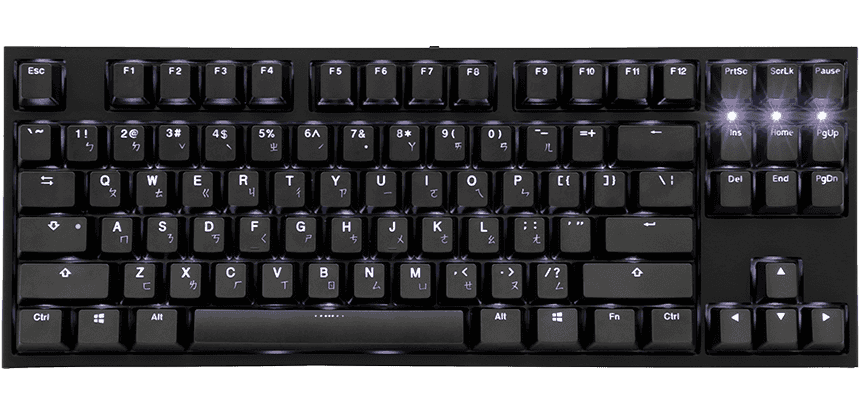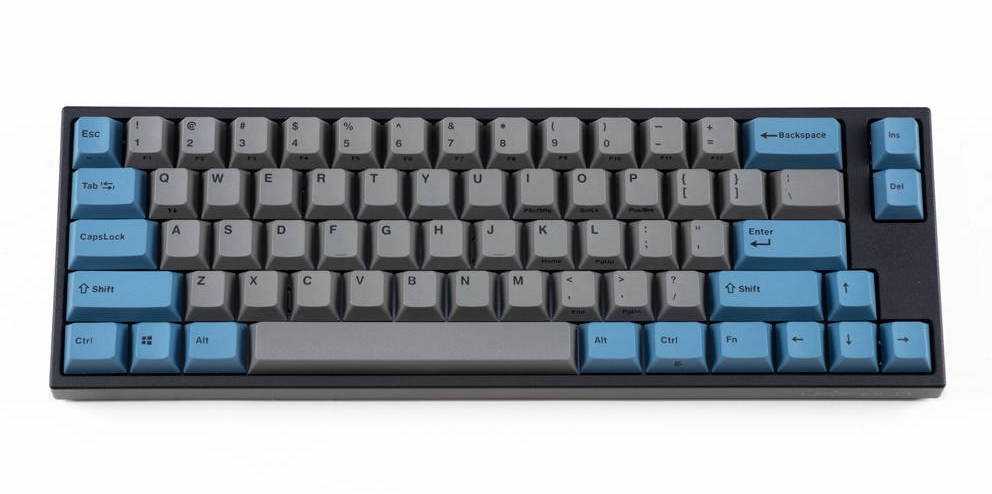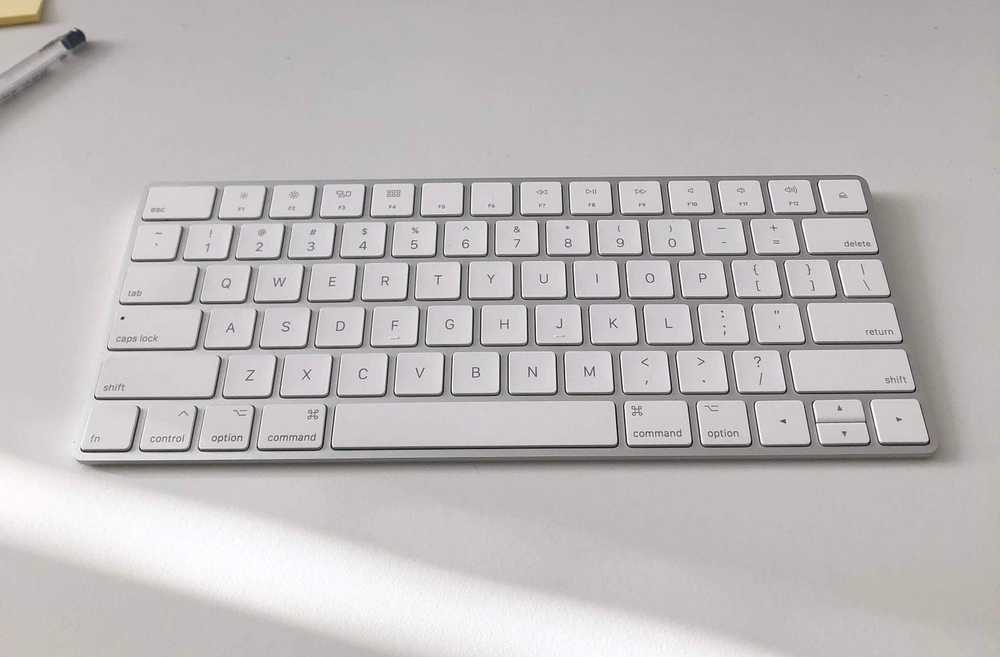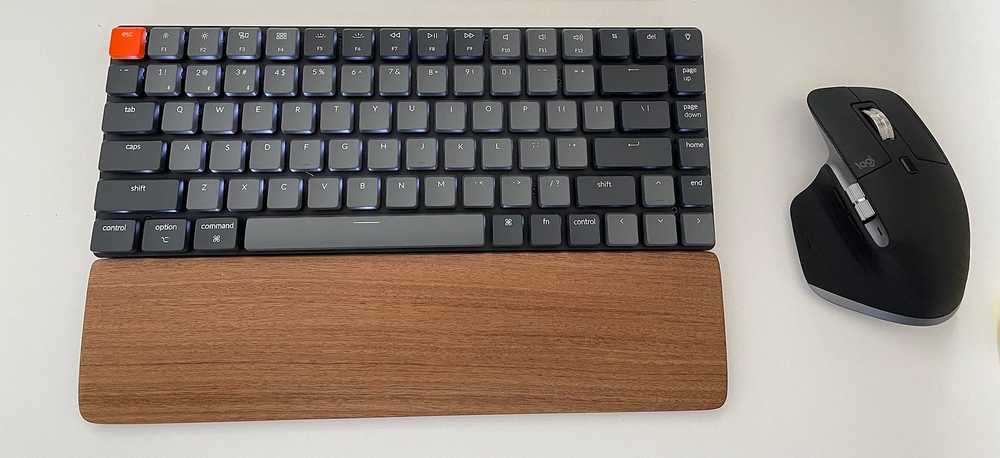No more mechanical keyboards for me
In my line of work (software engineering), one does not simply ignore the keyboard. It is, after all, the tool we interact with the most to get our job done.
So I thought it was natural that shortly after I started my first job as a software engineer in 2016 I became acquainted with and found myself immersed in the subculture of mechanical keyboards. People enjoyed the customisability and clickety-clackety of the tactile mechanical switches and so I thought I would too.
First, I bought the simple starter mechanical keyboard known as the Ducky One:

The Ducky One, my first mechanical keyboard (source: google images)
Then, I graduated to something a little more serious (and tactile). Whereas the Ducky had quiet “brown” switches, for this new keyboard, the Leopold something, I chose to go with the very clicky “blue” switches:

The Leopold something something (source: google images)
(Quick note for the uninitiated: the colour of the switches were visible under the keycaps. Cherry, the company that created the original switches, used colours to differentiate profiles of tactility and pressure of the actuators.)
Those blue switches were proper noisy. They distracted me not only because of the unrelenting audial assault but because to produce the click, I had to press harder into the keys. So I was effectively doing more work unnecessarily to annoy myself unnecessarily. What a bargain.
So I took a break from mechanical keyboards and for a while, just stuck with the simple company-issued Magic Keyboard:

The Apple Magic Keyboard. It’s technically non-mechanical but it is a workhorse.
But some time after I started at Shopify, I felt the urge to take a swing at mechanical keyboards again.
I don’t know what compelled me to try again, but the fact that someone in my onboarding group mentioned having a mechanical keyboard obsession and seeing how everyone reacted positively to his “confession” probably had something to do with it.
The good news is that by now, having typed a lot more, I’ve come to know my needs a bit better. I realised in retrospect that my wrists were liberated the last time I stopped using the Leopold mechanical keyboard and switched back to the flat Magic Keyboard. They felt less strained and eventually, the pain that I didn’t know I had were alleviated.
So this time, I knew I needed something with a low profile like the Magic Keyboard. Have you seen the thinness of the thing?

The Magic Keyboard is incredibly thin compared to even a low-profile mechanical keyboard like the Keychron K3 (see also next pic).
With this insight, I bought the Keychron K3, a low profile wireless mechanical keyboard with the smooth and satisfyingly quiet “brown” keys. I also bought a $25 wooden palm rest that is shaped to work nicely with this particular keyboard in anticipation of wanting to alleviate the wrist pain that was about to ensue:

Keychron K3 low profile mechanical keyboard and palm rest.
Now, having used it for a few months, my wrist pains were slowly creeping back into my life. Interestingly, I also noticed myself typing slower.
Recently I stopped and questioned myself. Why the heck am I doing this? Why did I get these keyboards? And why did I keep coming back, hoping to find one that works for me when the standard-issue Magic Keyboard was working fine all along?
The first words that came to my mind were these:
People like us do things like this.
For some reason, I can clearly remember where I learned that phrase (not normal for bad-memory-me). It was from Seth Godin’s blog about marketing. In the short post, he explains:
More than features, more than benefits, we are driven to become a member in good standing of the tribe. We want to be respected by those we aspire to connect with, we want to know what we ought to do to be part of that circle.
Put plainly, I think I kept looking for a mechanical keyboard that would suit me so that I can signal that I belong in the circle of software engineers.
Funnily, along the way, I did acquire a taste for the sounds of the mechanical switches. I now find it pleasing to hear and to produce those shuck, shuck, shuck! with my fingers on every keystroke. But the issue of wrist pains and reduced typing speed got me to reevaluate the need for these special keyboards in my life.
Can I be honest with you? I feel like a stupid sheep that unquestioningly introduced complexity into my life. There was nothing wrong with my keyboard, but I let other people decide for me that perhaps there was, and that I should go looking for a fix.
To be honest, I feel more worried than stupid because this gets me wondering - just how many of my decisions are actually made by me through my independent-thinking mind? And how many things in my life have I unthinkingly let people decide for me?
Probably a lot…
But today I’m putting the stake in the ground to unmake one of the decisions that I never made myself: I am a software engineer, but I do not need mechanical keyboards. I can still do my work. In fact, for me, I can do it faster, and with less pain.
The moral of the story is this: don’t let people decide what is best for you.
